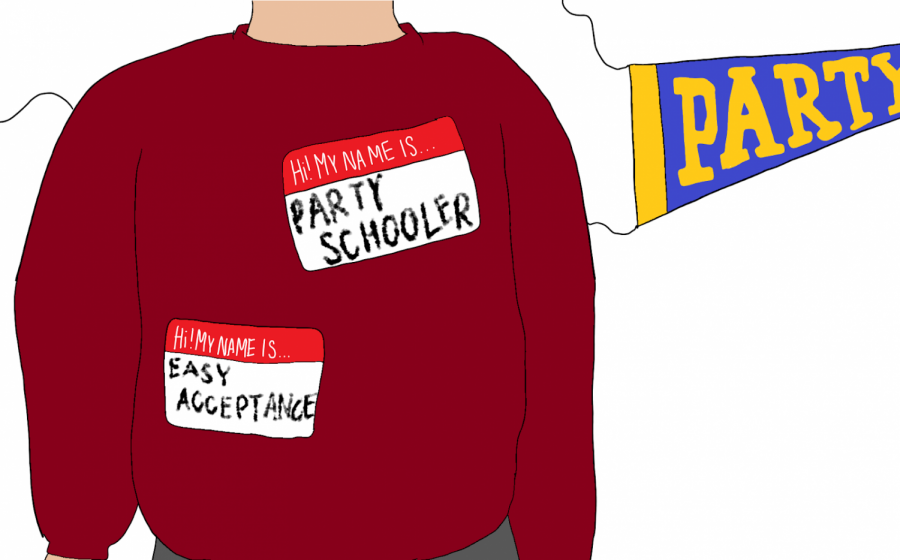Party vs. Pretentious: The Dangers of College Perceptions
Students often share the fears that they will get rejected from their dream school, they will not know what major to choose or they will eventually grow to dislike the university they commit to, according to Challenge Success. These internalized feelings may unconsciously start to appear on the surface when people make hurtful comments.
Photos of seniors proudly wearing their future university hoodies and posing in front of their campuses are popping up all over Instagram. Clicking on the comments section, phrases such as “That’s a party school!” or “Everyone gets accepted there” fill the page.
Unfortunately, it seems that all of these posts are filled with backhanded compliments and insults. In turn, this raises judgements and creates negative comparisons to universities around the world, causing students to feel discouraged. Instead of making hurtful comments, students should remember that college means something different for everyone depending on their goals.
Amy Binder, a sociologist the University of California, San Diego, and Andrea Abel, a student who attended UCSD, conducted a study in which a handful of Stanford and Harvard students felt that schools outside of their own were either too social, not social enough or too unprofessional, according to the Atlantic. In addition, the article states how comparing campuses might also be the cause of a defense mechanism, resulting in inner fears within students.
Students need to realize that assigning stereotypes to certain colleges, such as referring to them as “easy to get into” or “party schools,” is offensive. Choosing a college is a unique decision for every individual, as it is crucial to keep in mind what would be best for a desired major or program.
We hear about college stereotypes from a very young age, whether good or bad. Colleges such as the University of California, San Diego have the label of “UC Socially Dead,” while the University of California, Santa Barbara has the label of having a more social atmosphere, according to the California Aggie.
Senior Miranda Rivera, an incoming freshman at UCSB, has heard some perceptions about her own university and fortunately has been able to communicate with others and see for herself whether these were accurate or not.
“I believe that the stereotype that the students at UCSB are easy-going and more relaxed is very accurate based on students I have talked to who attend the school,” Rivera said. “This is probably due to the ability to walk to the beach and the constant exposure to nature while on campus or when biking to campus.”
From her perspective, she noticed that some of these rumors surrounding the school environment were true. However, this is not the case for many students.
The only individuals who will truly understand a certain college’s lifestyle and values are the current students of a given university.
Students should have the right of finding out for themselves whether or not they enjoy the school, without negative outside opinions. According to College Confidential, the process of thinking about college can lead to anxiety and fears. Some of these fears include picking a school that will accept and represent a student as who they are, or choosing the right institution in the first place.
In addition to the harsh stigmas surrounding these universities, community college students face the most backlash from peers. Some of the stereotypes surrounding community college are that the students were all rejected from four years colleges, the professors are the second rate or there is not a large major selection, according to Community College Review.
Although these stigmas have been proven over time as invalid, according to Community College Review, students still hear these invalid judgments on a regular basis.
Students review multiple factors before committing to a college, such as the economic, social and educational benefits or setbacks. Judging or undermining one’s chosen pathway does not uplift anyone, and it is smarter to think before commenting on something that could be interpreted as insulting.
Your donation will support the student journalists of Portola High School. Your contribution will allow us to purchase equipment and cover our annual website hosting costs.

Krisha Konchadi is the front page editor this year on the Portola Pilot. Along with editing and creating the front page, she loves making graphics and...





